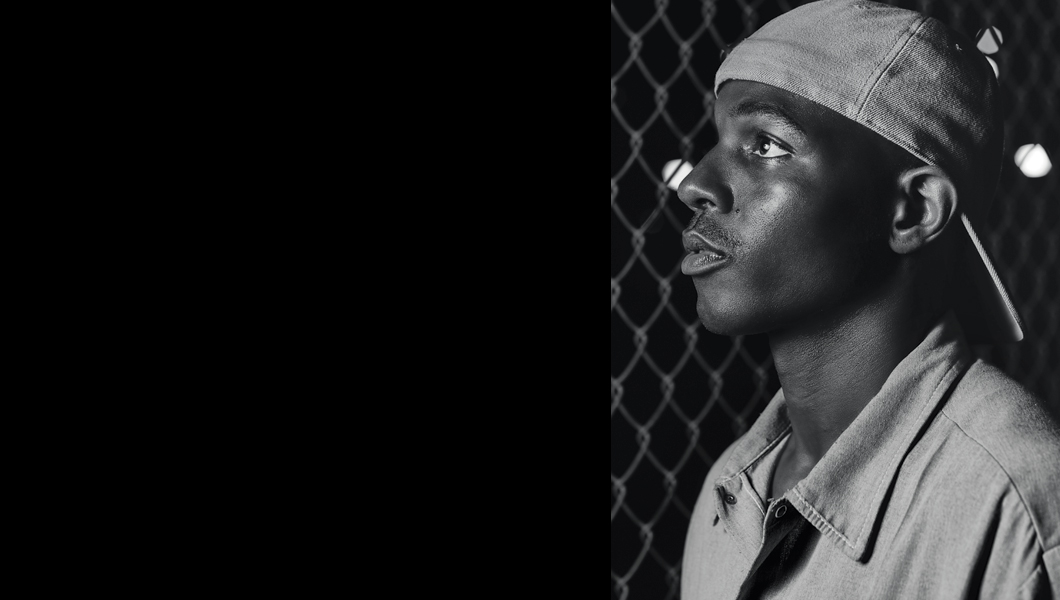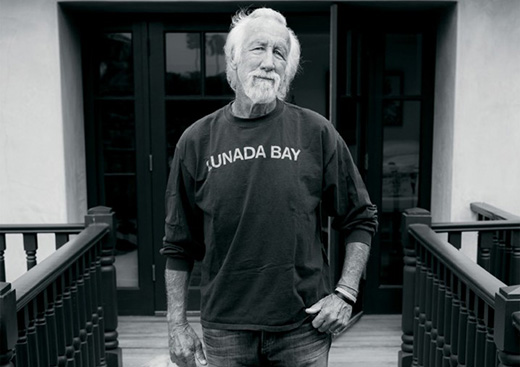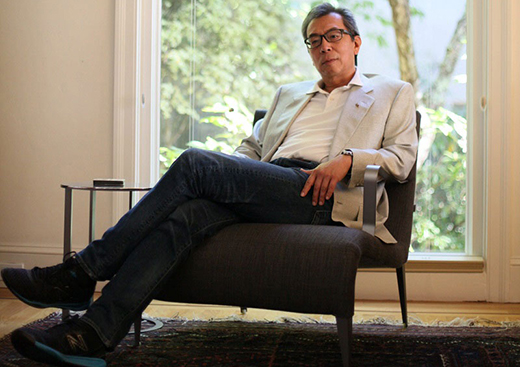SAN QUENTIN IS ONE OF THE MOST NOTORIOUS PRISONS IN AMERICA. HOWEVER, IT IS PERHAPS ONE OF ITS MOST PROGRESSIVE. WITH SEVERAL EDUCATIONAL AND THERAPEUTIC PROGRAMS, SAN QUENTIN MAY JUST BE A PART OF HELPING RESHAPE THE PATH TO PRISON REFORM.
By all accounts Curtis Carroll is a killer. He is serving a life sentence for a murder he committed over 20 years ago when he was 16. My own early exposure to violence and the underlying causes of violent crime committed by kids has had me on a 30-year journey working in both juvenile and adult institutions, not only because I don’t believe in throwing people away, but I have learned that many of the criminal offenses that result from poverty and lack of education can be intercepted. I have been motivated to find solutions to end excessive violence and help people heal from trauma.
It was through my work with Lonnie Morris, an inmate and founder of “No More Tears,” a rehabilitation program inside San Quentin, and my Aim4TheHeart/Mic-Sessions workshops that I first met Curtis “Wall Street” Carroll. Carroll discovered and developed his genius behind bars, by creating and implementing a curriculum to teach financial literacy. The workshop he is doing inside San Quentin prison with the support of the California Department of Corrections has the potential to have a massive impact on the lives of young people who grow up unvalued and underserved just like him. His work is not only at the heart of rehabilitation but can affect those who have never known habilitation in the first place. Examining Carroll and his work is an exploration into our humanity and a coming to terms with the value of life.
Carroll was a child born in the heart of the crack epidemic that left a generation of children fighting for survival in the streets. No guidance, terrible examples, an addicted mother, no father present—a boy nurtured by deprivation. He is the result of a community ravaged by drugs and poverty. His was the life that didn’t matter until he took someone else’s. When he committed murder as a teen he didn’t even see a person, he saw an opportunity to take what he didn’t have. Not to mention that the teenage brain is not developed enough to understand the permanence or consequence of one’s action. This is not an excuse but an effort to diagnose a condition that has our prisons filled with primarily black and brown bodies. I have heard it said too many times that life is all about choices. I know that to be only partially true. It is much more complex than that; we are only equipped with the choices we are taught that we have.
This is the story of a young man who found his redemption and reconciliation while learning about finance. It hurts to see what Carroll has created in the worst of conditions. Can you imagine who he could have been had he grown up in an environment that nurtured his gifts—if he had the opportunity to be mentored by lawyers, businessmen, investors and doctors instead of gangs, dealers, pimps, prostitutes and addicts?
In 2014 I led an initiative with University of Southern California law professor Jody Armour, with whom I co-teach a class on “Stereotypes, Prejudice and the Rule of Law.” We brought over 30 law students together with a group of inmates to participate in different programs inside San Quentin for a discussion on law, accountability, redemption and advancing the work of restorative justice. One of the most important parts of the day was when Carroll prompted a discussion about the role of money and business education as a crucial part of any sustainable impact, suggesting that if we want to see a significant decline in recidivism we need to teach commerce—because the majority of offenses stem from crimes related to economic advancement.
As I learned more about the course he created and taught every Thursday, I was interested. I asked if I could attend his workshop. My own work with youth has been in emotional literacy, but I know that it goes hand in hand with what he was developing. With the support of Lieutenant Sam Robinson and Media Specialist Larry Schneider, I was invited to join and allowed to document my experience. Carroll opened the class of about 50 men in a large circle. He has a gentle, unassuming presence with deep eyes and a huge smile that lights up the room. He doesn’t look a day over 25, and yet when he begins to talk he commands attention. I was moved to tears. Why did he have to lose his freedom to find his way? It is one thing to become literate in the world of wealth but another thing entirely to be able to translate it. He has done both.
He opened the session with a discussion about the meaning of the word “money.” It was fascinating to see the varied responses when he asked for everyone’s definition. He connected the study of business to dreaming, having a mission and goals for one’s life. He has created a framework for learning that is accessible to those with no experience, and he speaks in a language that is relatable. His work can be duplicated and he encourages everyone in the room to take what they learn and apply it to friends and family on the outside. He gives the participants a window into family structure, morality and its relationship to the world through the study of capital, with a mathematical breakdown of how and why crime doesn’t pay. The study of business is a study in values, he explains, specifically what and whom we value. A child who is not valued never learns how to value himself, nor the capacity to value others. Through his class I witnessed how empowering it is to become financially literate. What struck me the most was watching him reclaim his power in the service of others and reconstruct the mindset of the inmate population to rethink approaches to making money. In one of America’s most notorious prisons, here is a young man incubating the economic engineers of tomorrow. Many of these men will now have the opportunity to lead productive lives as a result of Carroll’s class.
The brutality of racism and sheer waste of human life has never been more present than in prison privatization and its mass incarceration of people of color. It is a travesty that most people don’t want to look at. The politics of unrelenting pain turned rage play out in pages of court transcripts and so many lives lost in the system. Inmates have become North America’s working capital and end the school-to-prison pipeline. It’s do-able—I want us all to want to see a better world in our lifetime. I want to see people like me, who were born wanted and loved, to care for those not as fortunate. Empathy can go a long way. Instead of throwing away this young man, we can look at ways to let his gift be better served and hopefully prevent more wasted life, because sometimes the brightest minds are behind bars blinded, because brilliance misdirected is lethal.
—




